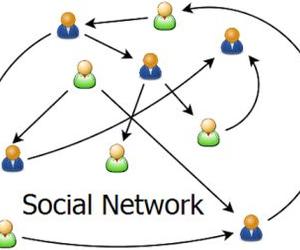Radio/TV Marti’s new ways of disseminating information
- Submitted by: lena campos
- Computers and Internet
- 06 / 15 / 2013

Trying to get around Havana’s censorship, the U.S Office of Cuba Broadcasting is showing off novel ways to disseminate information on the island, including USB drives made of paper and a system for sending cell phone text messages to large groups.
“With these new initiatives we are enhancing the way that people in Cuba can share information,” said OCB director Carlos Garcia-Perez, who runs the U.S. government’s Miami-based Radio and TV Martí broadcasters.
Garcia-Perez said OCB has been anticipating Cuban efforts to block the new initiatives — Havana already jams TV Martí and less effectively Radio Martí — and “we already have contingency plans for that.”
OCB showed off its new technology Thursday at a Washington gathering hosted by the Broadcasting Board of Governors, in charge of all U.S. government broadcasters, and designed to highlight how the broadcasters are trying to increase their audiences.
Among the items displayed by OCB were USB flash drives made of paper that can be more easily smuggled around the island. Cuban authorities have been confiscating the regular flash drives from dissidents and visitors arriving at Cuban airports.
“We’re pretty creative here,” García-Perez told El Nuevo Herald on Friday. “As you know, the flow of information into Cuba is a constant challenge. But we have made huge leaps to provide a free flow of information to the people.”
Radio/TV Martí already deliver their programs to Cuba by satellite and on CDs, DVDs and regular flash drives. Its main Web pages are blocked by Havana, but copies are accessible on thinly disguised facilities known as proxy servers.
The broadcasters also already reach hundreds of thousands of Cubans a month with a computerized system, developed by mass marketers, to send out text messages to millions of people from different phone numbers so that they cannot be blocked.
OCB staffers also highlighted a recently created social networking system called Piramideo — roughly making pyramids — which allows participants to create groups and sub-groups and send cell phone text messages to large numbers of people at a time.
Families and businesses can use the system to link up groups of relatives or customers, according to the OCB presentation in Washington. It could also deliver uncensored news or political messages.
Under the slogan “Connect, Announce, Have Fun,” the system’s Web page describes itself as “a social network that allows you to connect with your people. From your cell phone or our Web page … Piramideo helps you to share what happens each second with your friends, relatives, clients, employees, etc.”
Text messages sent from Cuban cell phones cost $1 but are free if sent from the Internet.
The cell phone text messages must be sent to a number in Spain, and there were reports Friday that the Cuban government had already blocked the number through its telecommunications monopoly, ETECSA.
Garcia-Perez said that the system was working as of 11:39 a.m. Friday.
Source: Miami Herald.com
Comments